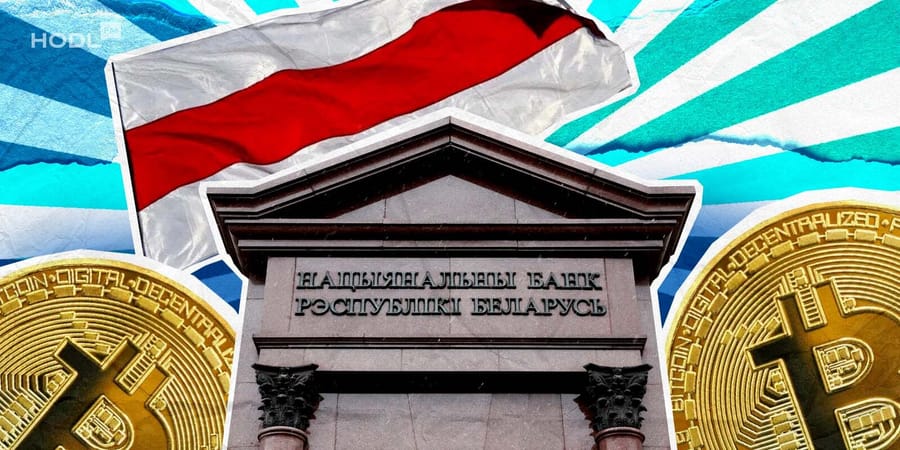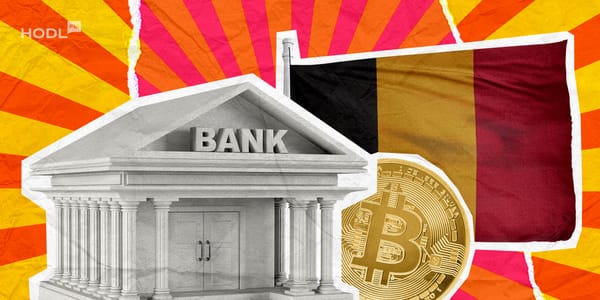Belarus is ordering commercial banks to expand their use of digital assets and tokenization as Western sanctions continue to weigh heavily on its economy. President Alexander Lukashenko framed the move as both a necessity for sustaining cross-border payments and a strategic step toward financial digitalization.
Digital assets as a sanctions workaround
At a meeting this week with the National Bank of Belarus, Lukashenko emphasized that cryptocurrency transactions are becoming central to the country’s financial strategy. He noted that external payments via exchanges totaled $1.7 billion in the first seven months of 2025, with projections suggesting volumes could reach $3 billion by year-end, according to an official transcript from the presidential administration.
Lukashenko argued that tokenization could reduce reliance on intermediaries, increase automation through smart contracts, and give users more control over assets.
“Digitalization here is not for the sake of digitalization, but for real economic effect,” he said.
Expert perspective on strategic alignment
Andrew Fierman, head of national security at blockchain analytics firm Chainalysis, said that Belarus’ pivot mirrors Russia’s approach to sanctions evasion. Belarus faces mounting financial pressures from both inflation and sanctions, making digital assets attractive as tools for wealth preservation and cross-border transfers.
“Russia has legislated new frameworks for crypto transactions and rolled out a ruble-backed stablecoin, which is helping shape a growing shadow crypto economy.” Fierman says.
Regional parallels in Kyrgyzstan
The push in Minsk coincides with broader patterns in Moscow-aligned economies.A TRM Labs investigation details how Russian entities have used Kyrgyzstan’s crypto sector to bypass restrictions. While Kyrgyzstan’s industry was almost nonexistent before 2022, transaction volumes surged to $4.2 billion by mid-2024, much of it linked to Russian demand rather than local use.
Some platforms appear to operate as shell companies with connections to the shuttered Russian exchange Garantex, underscoring how regional crypto networks are being repurposed under sanctions pressure.
“The recent growth of Kyrgyzstan’s crypto industry appears to be driven by Russian demand, not domestic usage,” says TRM Labs’ EMA Head of Policy Isabella Chase.
According to TRM Labs,
“Many Kyrgyz-registered platforms, including Grinex and Meer, exhibit clear links to Russian exchanges like Garantex and facilitate large-scale ruble-to-crypto transactions using Russian-backed stablecoins such as A7A5,” Chase explained.
New TRM analysis shows how Russia is turning to Central Asian nation Kyrgyzstan to access #crypto rails, route funds through shell exchanges, and evade sanctions.
— TRM Labs (@trmlabs) July 23, 2025
Learn more 👉 https://t.co/YZrIpDZgIC pic.twitter.com/A2RPlo3NiX
Sanctions context
The European Union has imposed sweeping measures against Belarus since its contested 2020 elections, citing systemic repression and rights abuses under Lukashenko. While Belarusian officials estimate crypto-based external payments could reach $3 billion annually by December, the scale of these flows remains small compared to global markets. For context, Bitcoin alone sees an average daily spot trading volume between $20–30 billion across exchanges, according to CoinMarketCap.
This suggests that, although the adoption of digital assets could help Belarus facilitate certain cross-border transactions, the country’s activity is unlikely to materially shift global liquidity or Bitcoin pricing in the near term. Instead, the development highlights how sanctioned economies are increasingly turning to digital rails for settlement, a trend observed in other jurisdictions such as Russia, Iran, and Venezuela.
Back in 2023, an operation led by French and US authorities and strongly supported by Europol targeted the crypto exchange platform Bitzlato. One of many successful attempts to stop Russian-linked activities. The sanctions, extended until February 2026 cover 310 individuals and 46 entities, including asset freezes, travel bans, and funding restrictions, according to the Council of the European Union. They were expanded in 2022 following Belarus’s support for Russia’s war in Ukraine.

Disclaimer: All materials on this site are for informational purposes only. None of the material should be interpreted as investment advice. Please note that despite the nature of much of the material created and hosted on this website, HODL FM is not a financial reference resource, and the opinions of authors and other contributors are their own and should not be taken as financial advice. If you require advice. HODL FM strongly recommends contacting a qualified industry professional.




